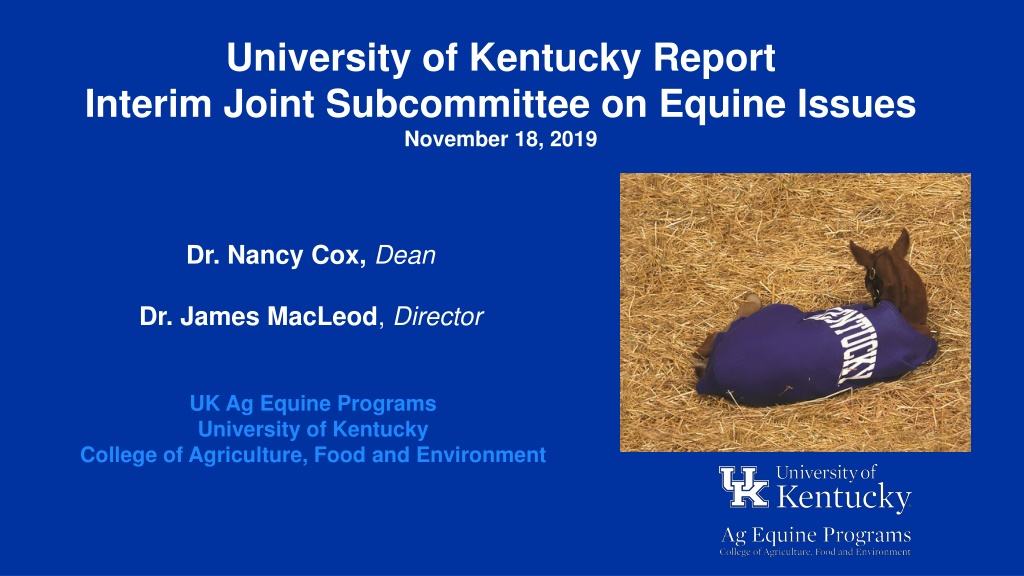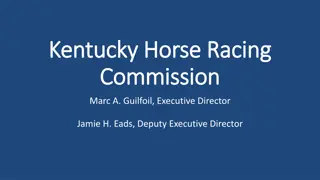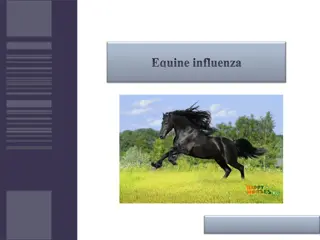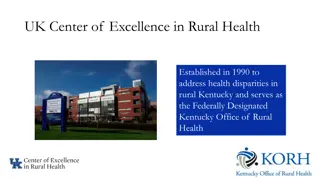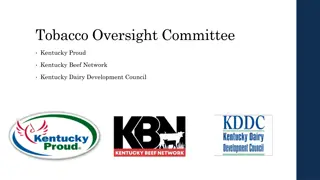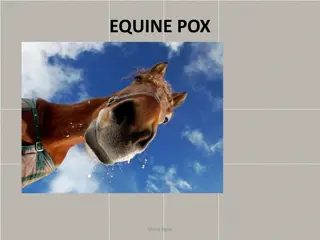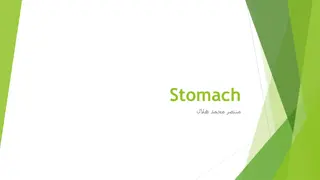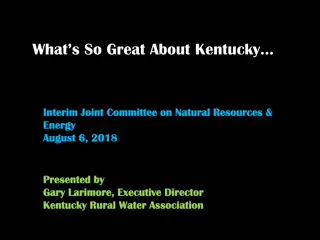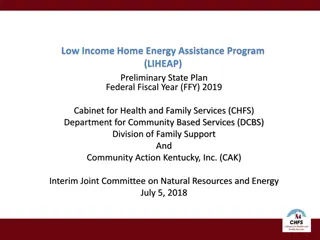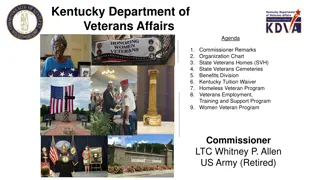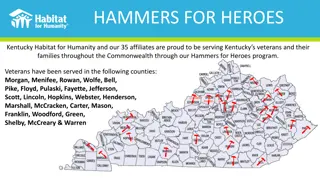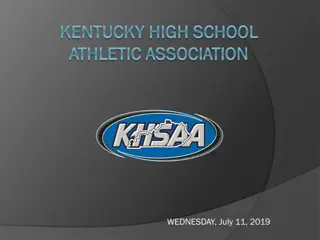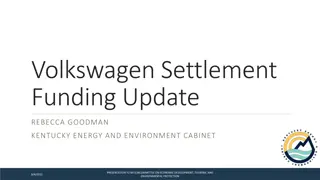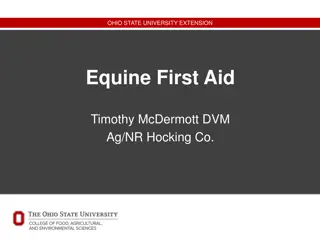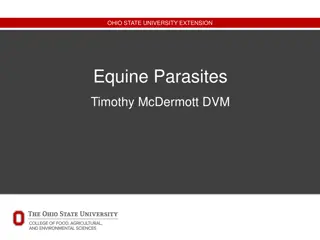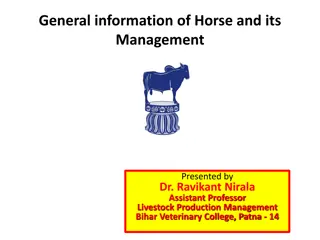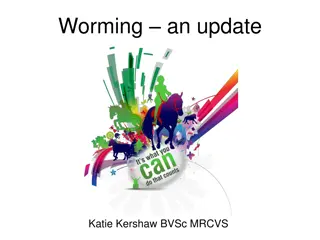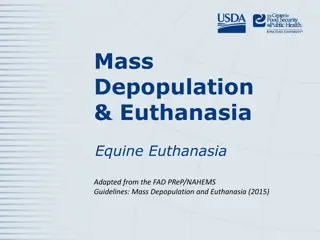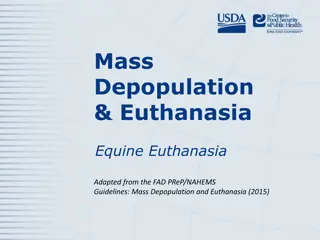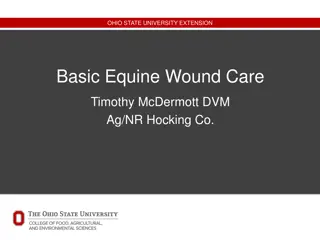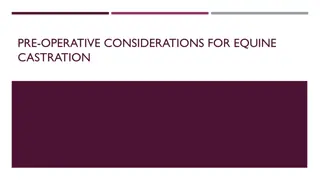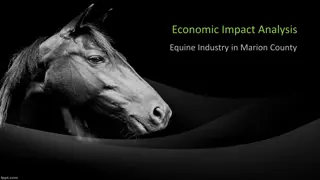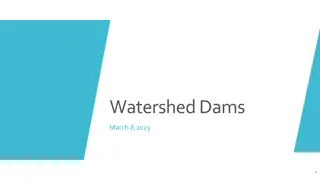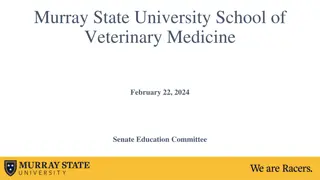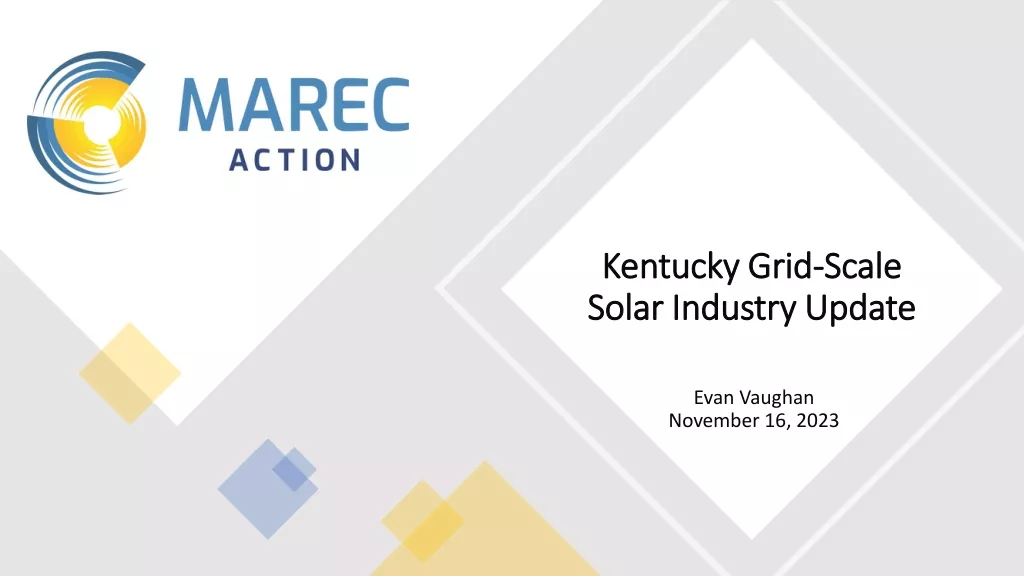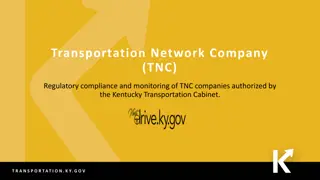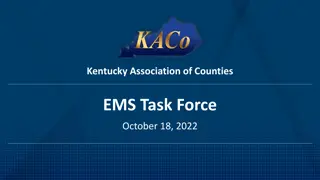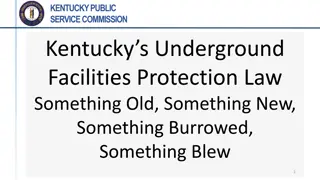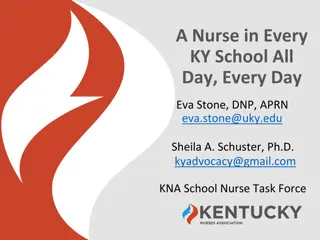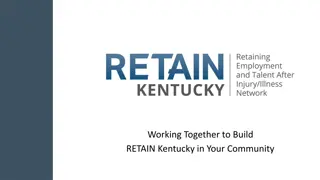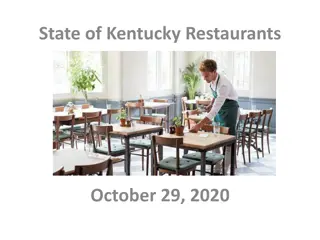University of Kentucky Equine Programs Overview
The University of Kentucky's equine programs, led by Dr. Nancy Cox and Dr. James MacLeod, are nationally and internationally recognized for their contributions to equine research and education. With a focus on workforce development, the programs offer undergraduate and graduate opportunities in equine science and management. The alumni employment data highlights diverse career paths within the equine industry and beyond. Through partnerships and innovation, UK's equine initiatives continue to make a positive impact on Kentucky's legacy in the field.
Download Presentation

Please find below an Image/Link to download the presentation.
The content on the website is provided AS IS for your information and personal use only. It may not be sold, licensed, or shared on other websites without obtaining consent from the author. Download presentation by click this link. If you encounter any issues during the download, it is possible that the publisher has removed the file from their server.
E N D
Presentation Transcript
University of Kentucky Report Interim Joint Subcommittee on Equine Issues November 18, 2019 Dr. Nancy Cox, Dean Dr. James MacLeod, Director UK Ag Equine Programs University of Kentucky College of Agriculture, Food and Environment
Equine at UK: National and International Leadership, But a Direct Positive Impact on Kentucky Legacy of equine research has evolved from health and nutrition to all facets of equine science. Recommitment to the industry in the aftermath of Mare Reproductive Loss Syndrome crisis in 2001. New programs launched 2005 as UK Equine Initiative. New areas of excellence in education, economics, environment, pharmacology and racetrack safety. More than 50 faculty and staff provide diverse expertise and scientific approaches.
Workforce Development: UK and Our Partners UK undergraduate: Equine Science & Management Emphasis in science, business, communications/leadership 330 students currently enrolled 418 alumni in 11 years Graduate/professional equine-affiliated programs Equine health studies at the Gluck Equine Research Center Agricultural disciplines including Animal Science, Plant and Soil Science, Economics, Engineering Other UK colleges and departments, including Medicine, Nursing, Law, Business, Engineering, Computer Science All skill levels, lifelong learning, leverage programs Adult and youth education: UK agricultural Extension Multiple university and industry partnerships Basic, career and technical education programs
Equine Science and Management Undergraduate Program Student Enrollment (fall semester) 2019 demographics: 21% first generation 330 322 320 304 301 301 266 237 418 total graduates as of April 2019 219 168 121 High industry retention 103 42 Tip of the iceberg for industry needs 2007 2008 2009 2010 2011 2012 2013 2014 2015 2016 2017 2018 2019
Equine Science and Management Alumni Employment (April 2019) Continuing Education - 17% Riding/Training/Showing- 17% 2% 5% 6% 17% Unknown - 13% 6% Equine Medical - 11% Farm Management/Breeding - 9% 7% Sales/Retail - 7% 17% Non Profit/Associations/Education - 7% 7% Employed, but not in equine - 6% Marketing/Public Relations - 6% 9% 13% Research - 5% 11% Professional Services - 2%
Equine Science and Management Alumni Employment (April 2019) We are the reverse of a brain drain in terms of employment. Not only are we keeping our best and brightest young citizens within the state, but we are drawing the best and brightest from around the country to Kentucky. Further Education 20% Kentucky 58% Other States 22% Importantly, they stay in Kentucky!!!
Complex, Multidimensional Challenges Require Comprehensive, Multidisciplinary Solutions Horse Safety Rider Surface
Research and Public Outreach Programs Safety Horse musculoskeletal health and well-being Rider injury prevention and health assessment Surfaces, racing and show Medication pharmacology, toxicology and testing Farm Facilities and Pasture Barn design and ventilation Manure and insect management Optimizing pastures Environmental stewardship Youth and Adult Educational Programs 4-H equine programs Adult equine programs Legal, business and cultural equine programs Second career options for retired equine athletes Equine-assisted therapy and workforce training Equine welfare research
Questions and Discussion Thank You
